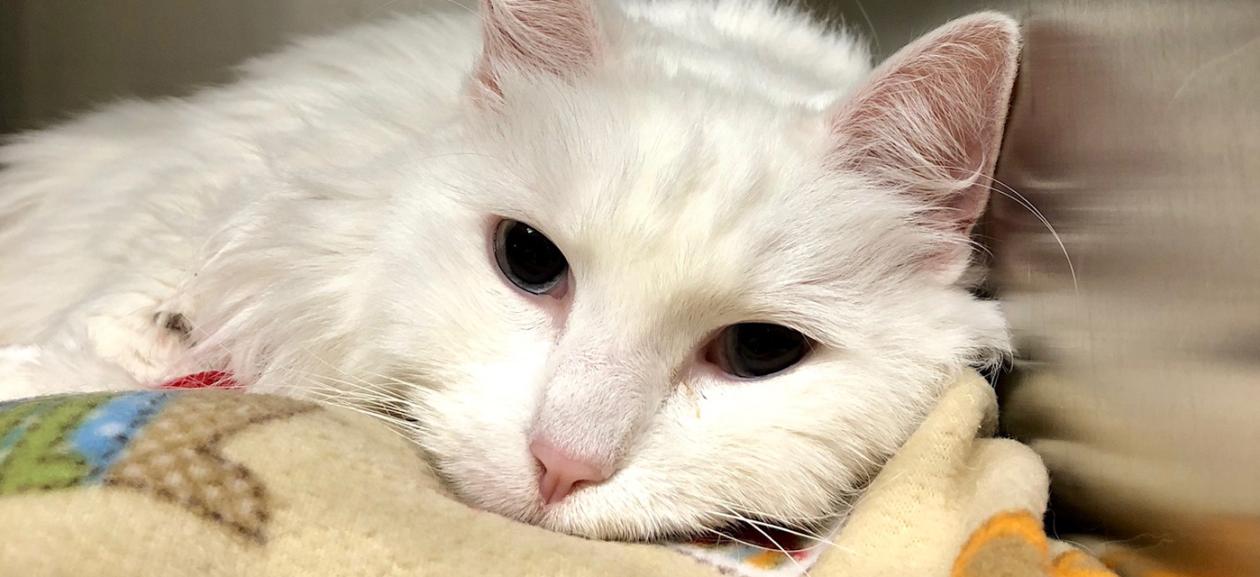
Keeps Pets Safe From These Common Household Items
PORTLAND, Ore. – For National Poison Prevention Week (March 17-23), doctors at DoveLewis Emergency Animal Hospital are reminding pet owners to include animal safety in their poison prevention methods.
“Several common household items are poisonous to pets – some are even fatal,” said Dr. Ladan Mohammad-Zadeh, a DoveLewis critical care specialist. “Many of our companion animals have a tendency to get into places they shouldn’t – garbage cans, cupboards, purses, etc. It’s important to know what items are harmful and keep them safely secure and out of reach of our pets.”
Exposure to a poison is one of the most common reasons pets visit the emergency room at DoveLewis. These toxins are most often ingested by the animal. In fact, in 2017, DoveLewis patients consumed more than 150 types of food, objects or other inappropriate items causing illness or injury. Toxic items include:
FOOD AND DRINK
- Chocolate
- Alcohol
- Grapes and raisins
- Coffee and tea
- Dough
- Xylitol (artificial sweetener)
- Onions and garlic
DECORATIVE ITEMS
- Ornamental plants (lilies, sago palms, tulips, and more)
- Fragrance products
NARCOTICS
- Marijuana
HUMAN MEDICATIONS
- Sleep aids
- Antidepressants
- Pain relievers
- Vitamins
- Veterinary prescriptions if ingested incorrectly
CHEMICALS
- Cleaning products
- Fertilizer
- Antifreeze
- Snail poison
- Rat poison
- Other pesticides and rodenticides
Additional tips for poison prevention:
- Store cleaning agents, pesticides, automotive products, and other dangerous chemicals in areas that are inaccessible to your pets.
- Keep garbage cans behind closed doors. Many animals get sick from sneaking into the waste bin.
- Never give your pet medication, especially human medication, unless directed to do so by a veterinarian. Human medications can be deadly for animals.
- Dispose old medications in a trash or container that animals cannot access.
- Read all labels prior to using any products in your home. Always follow the directions for safety.
- Do not use cat products for dogs and vice versa.
- Do not allow pets on lawns or gardens treated with fertilizers, herbicides or insecticides until the products have dried completely. Always store these products away from pet areas.
Ask the manufacturer or your veterinarian if you are uncertain about the use of any product. Signs of poison exposure vary, but include vomiting, diarrhea, lethargy, breathing issues, seizures and loss of muscle control. If a pet owner believes their animal has been exposed to a poison, they should seek veterinary treatment immediately.
Recent Posts
Marijuana Toxicity in Pets: What You Need to Know
As availability of marijuana increases in the Portland area since legalization, so have the number of marijuana toxicity cases treated at DoveLewis. Our doctors warn pet owners of the potential risks to their dogs and cats if marijuana is ingested in any form.
Dog Bite Prevention Tips
Now more than ever, people are venturing outside with their pets to get fresh air. This is increasing the possibility of interactions with other dogs that can lead to bites and injuries. DoveLewis is sharing tips to help prevent this from happening so animals and humans can stay safe.
How to Build a Pet First Aid Kit
Every pet owner should have a pet first aid kit handy in case of an emergency. If you need to put one together, we’ve got you covered!



